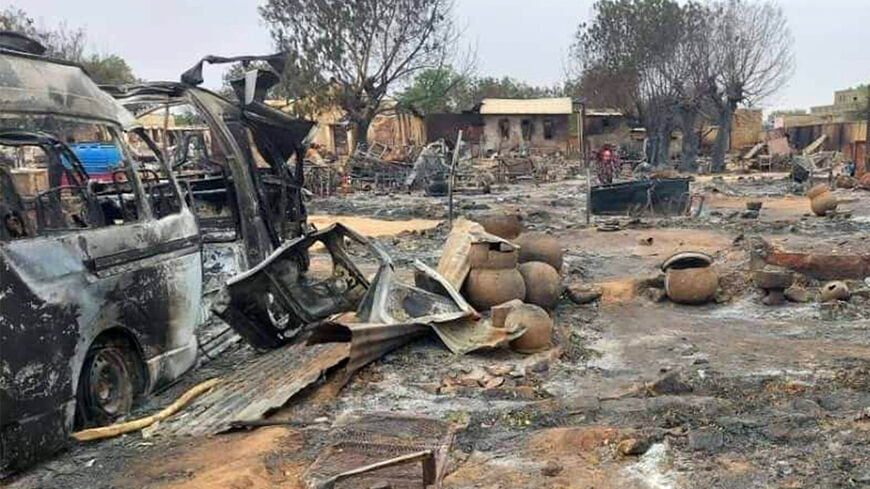Mohamed Hamdan Dagalo’s Rapid Support Forces have been widely accused of abuses during the fighting in Sudan.
The United States sanctioned a Sudanese paramilitary leader Wednesday, as pressure increases on the rebel side in the ongoing conflict in Sudan.
The US Treasury Department’s Office of Foreign Assets Control said it sanctioned Abdelrahim Dagalo, the deputy commander of the Rapid Support Forces (RSF) and brother of the group’s leader Mohamed Hamdan “Hemedti” Dagalo. In a statement, it alleged that RSF members “have engaged in acts of violence and human rights abuses, including the massacre of civilians, ethnic killings, and use of sexual violence.”
The designation freezes any property or interests Dagalo has in the United States and prohibits those in the United States from engaging in transactions with them.
The Treasury Department also called on both the RSF and the Sudanese Armed Forces to reach a cease-fire.
“The United States urges both sides of the conflict to cease the hostilities and violence perpetuating Sudan’s dire humanitarian crisis,” wrote Under Secretary of the Treasury for Terrorism and Financial Intelligence Brian Nelson in the statement.
Background: Fighting broke out between the RSF and the Sudanese Armed Forces in April. The conflict is ongoing despite efforts by the United States, Saudi Arabia, Egypt and others to establish a lasting cease-fire.
Sudan has been mired in instability since the 2019 revolution and ousting of longtime ruler Omar al-Bashir. A Transitional Military Council was led by Sudan’s de facto leader Gen. Abdel Fattah al-Burhan after the revolution until Burhan seized power in a coup in 2021.
Hemedti was deputy leader of the Transitional Military Council. Following the coup, a rift between him and Burhan led to the current conflict.
In May, President Joe Biden signed an executive order authorizing sanctions against individuals in Sudan responsible for the current violence.
Why it matters: Thousands of people have been killed in the fighting, and both the RSF and armed forces have been accused of human rights abuses.
The RSF’s conduct in the war has been especially scrutinized. In a letter to the United Nations last week, Human Rights Watch said that the RSF and its allied Arab militias in West Darfur “have deliberately targeted non-Arab communities, notably the Massalit ethnic group, and destroyed displacement camps and sites, killing, and injuring civilians, including those who were fleeing to Chad.”
In August, Amnesty International accused the RSF and allies of “causing untold death and destruction” in Darfur.
Darfur was the site of a devastating war from 2003 to 2020. The war had an ethnic dimension, pitting Arabized Sudanese in support of the government against non-Arab rebels. The RSF grew out of the Janjaweed militia that fought on behalf of the Sudanese government in the conflict.

